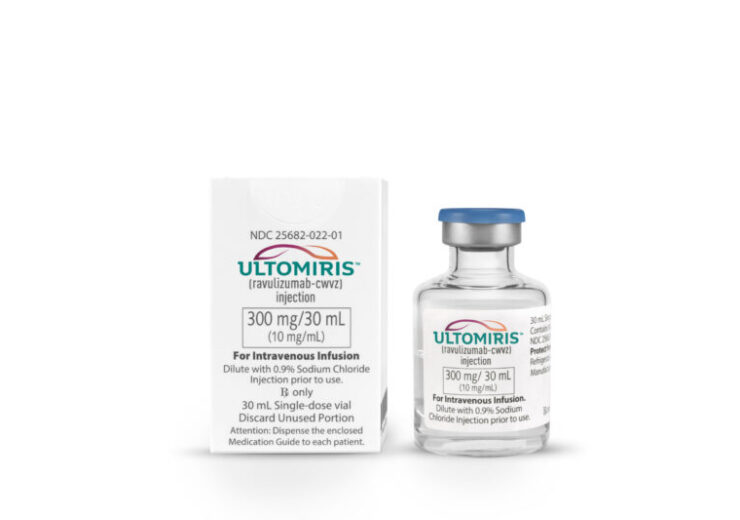The MHLW approval was based on the positive findings from the global multicentre CHAMPION-NMOSD phase 3 trial in which Ultomiris met the primary endpoint of time to first on-trial relapse

Ultomiris approved in Japan to treat NMOSD. (Credit: Business Wire/Alexion Pharmaceuticals, Inc.)
AstraZeneca has announced that its Ultomiris (ravulizumab) received approval from the Japanese Ministry of Health, Labour and Welfare (MHLW) to prevent relapses in patients with anti-aquaporin-4 (AQP4) antibody-positive (Ab+) neuromyelitis optica spectrum disorder (NMOSD), including neuromyelitis optica.
Ultomiris is said to be the first and only long-acting C5 complement inhibitor that offers immediate, complete, and sustained complement inhibition.
The MHLW approval was based on the positive findings from the CHAMPION-NMOSD phase 3 trial.
The global open-label, multicentre trial compared the C5 complement inhibitor with an external placebo arm from the Soliris PREVENT trial in 58 patients.
During the trial, an independent adjudication committee confirmed that Ultomiris met the primary endpoint of time to first on-trial relapse.
The British pharma giant said that Zero relapses were observed among Ultomiris patients with a median treatment duration of 73 weeks and continuing across the median duration of 90 weeks.
Alexion, AstraZeneca Rare Disease group, CEO Marc Dunoyer said: “Alexion transformed the NMOSD landscape by uncovering the exceptional efficacy of C5 complement inhibition in reducing the risk of relapses for patients.
“With today’s approval, we continue to deliver on our commitment to the NMOSD community, offering patients an innovative long-acting treatment option that has the potential to eliminate relapses with convenient dosing every eight weeks.
“We are proud to expand the reach of Ultomiris as we work to improve patients’ lives around the world.”
Recently, the C5 complement inhibitor was approved by the European Union (EU). It is also under regulatory review in the US.
In a separate development, the pharma company announced that IMFINZI in combination with chemotherapy followed by either IMFINZI plus LYNPARZA or IMFINZI alone showed a statistically significant and clinically meaningful improvement in progression-free survival (PFS) in advanced endometrial cancer.
These positive high-level results from the DUO-E phase 3 trial were compared to standard-of-care chemotherapy alone.
